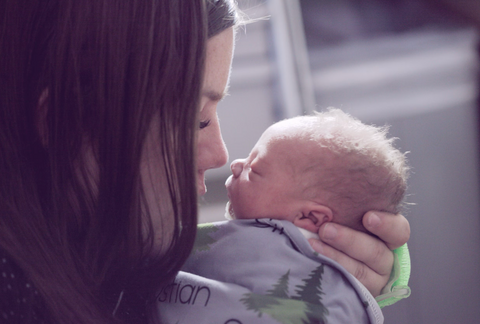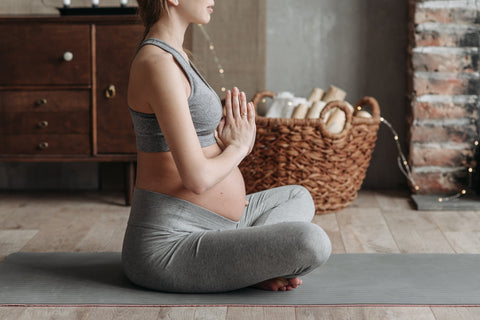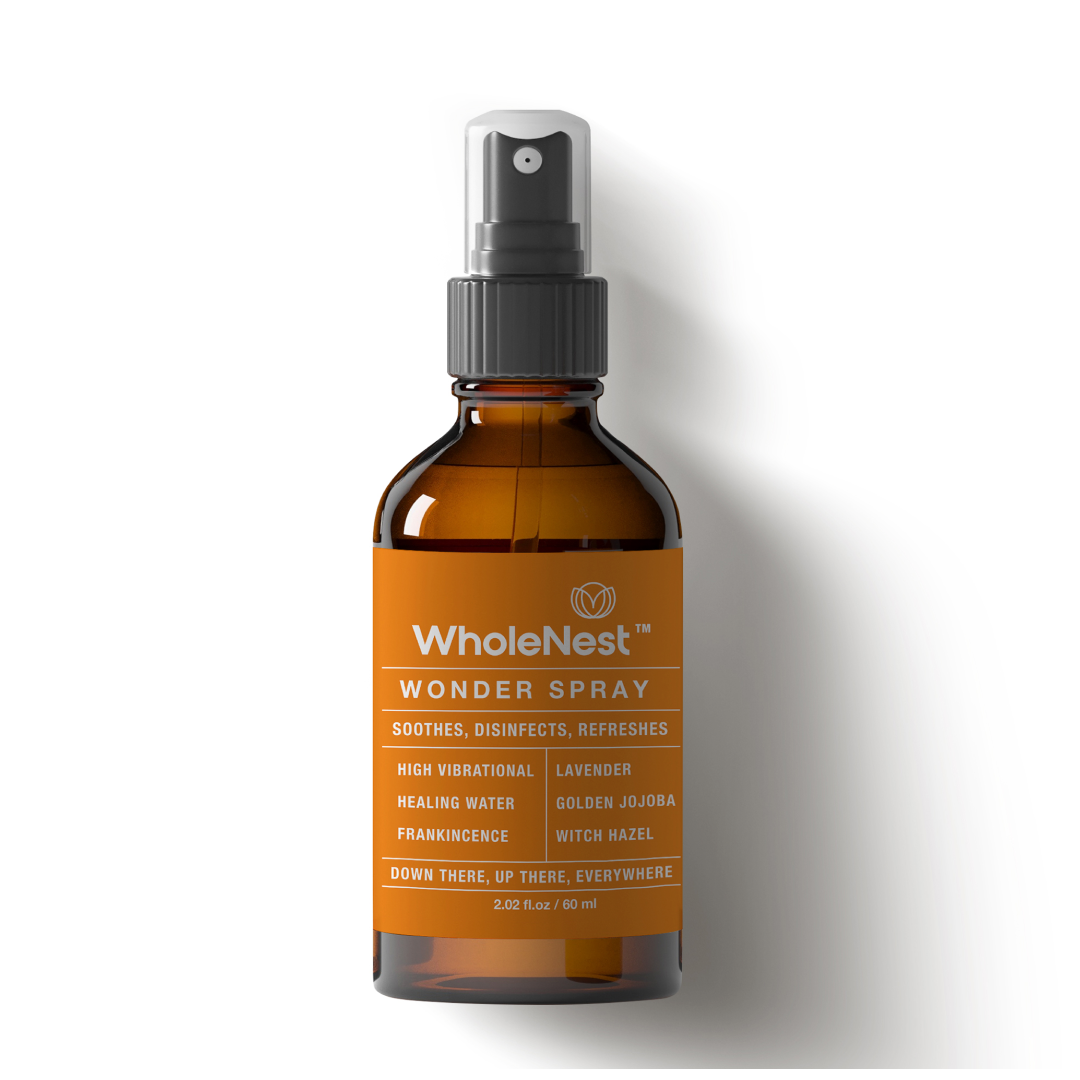If you're reading this, chances are you're navigating the rollercoaster ride of postpartum life. after giving birth can feel like a whirlwind, right? From the joy of holding your little one to all the emotions that come with postpartum life, it's a journey unlike any other.
When I became a mom myself, I quickly learned about the challenges new moms face, especially when it comes to postpartum depression and endless nights of interrupted sleep. It's tough—feeling exhausted yet unable to catch a break, emotionally drained, and wondering if you'll ever feel like "yourself" again.
In this blog, I want to talk about something so many of us experience but might not always discuss openly: postpartum depression and the impact of sleep deprivation. I'll share some practical tips that helped me and others, and introduce you to WholeNest products—natural remedies designed to support your postpartum journey. Let's dive in and find some relief together!
|
TABLE OF CONTENT What does Postpartum Depression look like? The Role of Sleep in Postpartum Depression |
What does Postpartum Depression look like?
PPD is not just the "baby blues" that many of us hear about. Sure, it's normal to feel a bit down or overwhelmed in the first few weeks after giving birth—hello, hormones! But postpartum depression is a whole different ball game.
PPD can hit anytime within the first year after childbirth, and it can leave you feeling more than just a little weepy. We're talking about intense sadness, anxiety, and fatigue that doesn’t just go away. You might feel disconnected from your baby, overwhelmed by the simplest tasks, or even question if you're cut out for this whole motherhood thing.

And here's the thing: It's more common than you might think. About 1 in 7 new moms experience PPD. So, if you’re feeling this way, know that you’re definitely not alone and it’s absolutely okay to talk about it.
So, what exactly is postpartum depression? It’s a type of depression that some moms experience after having a baby. Symptoms can vary, but here are some common ones to watch out for:
- Persistent sadness or hopelessness: Feeling down most of the time and not finding joy in activities you used to enjoy.
- Severe mood swings: One moment you’re crying, the next you’re irritable or angry without much reason.
- Withdrawal from family and friends: Not wanting to be around others or losing interest in social activities.
- Difficulty bonding with your baby: Feeling disconnected or struggling to form that mother-baby bond.
- Changes in appetite and sleep patterns: Eating too much or too little, and having trouble sleeping even when your baby is asleep.
- Thoughts of harming yourself or your baby: This is serious and needs immediate attention—reach out to a healthcare professional right away.
The key thing to know is that postpartum depression isn’t your fault, and it doesn’t make you a bad mom. It’s a medical condition that requires understanding and support, not judgment or guilt.
Next up, let's talk about how lack of sleep ties into all this, and why those sleepless nights can make PPD feel even tougher.

The Role of Sleep in Postpartum Depression
Now, let's talk about sleep—or more accurately, the lack of it. We all know that sleep is essential, but when you’ve got a newborn, getting those precious hours can feel like a distant dream. And guess what? Lack of sleep isn’t just making you tired; it can actually make postpartum depression worse.
Why is sleep so important?
- Emotional Regulation: Sleep helps us process and regulate our emotions. Without it, those little bumps in the road can feel like massive mountains.
- Energy Levels: No sleep = no energy. It’s tough to get through the day, let alone take care of a newborn, when you’re running on empty.
- Cognitive Function: Sleep deprivation messes with your ability to think clearly, make decisions, and even remember things. Ever find yourself putting the milk in the cupboard? Yup, that’s the lack of sleep talking.
- Physical Health: Your body needs rest to heal, especially after childbirth. Without it, you’re more susceptible to illness and slower recovery.
You see, sleep and mood are deeply connected. When you're not getting enough sleep, everything feels harder. Those late-night feedings and constant diaper changes are draining, and they can leave you feeling like a zombie. It's no wonder that sleep deprivation can intensify feelings of sadness, anxiety, and irritability.
Studies have shown that moms who get more sleep are less likely to experience severe postpartum depression. But how do you get more sleep with a newborn in the house? Easier said than done, right? While it might feel impossible to get a good night’s sleep right now, know that even small improvements in your sleep can make a big difference in how you feel.

Practical Tips for Improving Sleep
How can you actually get more sleep when you have a tiny human demanding your attention around the clock? Here are some practical tips that might just help you catch a few more precious moments of rest.
1. Establish a Sleep Routine:
Even though your baby's schedule might be all over the place, try to create a consistent bedtime routine for yourself. This could be as simple as having a cup of herbal tea, taking a warm bath, or reading a few pages of a book. Your body will start to recognize these cues and prepare for sleep.
2. Nap When the Baby Naps:
You've probably heard this a million times, but it really is good advice. Instead of using your baby’s nap time to catch up on chores, try to get some rest yourself. Even a short nap can be incredibly refreshing.
3. Prioritize Sleep Hygiene:
Make your bedroom a sleep sanctuary. Keep it dark, cool, and quiet. Invest in a good-quality mattress and pillows. And, as tempting as it is to scroll through your phone during those late-night feedings, try to minimize screen time before bed to avoid disrupting your sleep patterns.
4. Consider Co-Sleeping Safely:
If you’re breastfeeding, co-sleeping can sometimes make nighttime feedings easier and less disruptive to your sleep. Just make sure you’re following safe co-sleeping guidelines to keep your baby safe.
5. Seek Help with Nighttime Feedings:
If possible, enlist your partner or a family member to help with nighttime feedings. This might mean pumping breast milk so someone else can handle a feeding, giving you a chance to sleep a bit longer.
6. Use Products for Relaxation:
Our WholeNest products can also support better sleep. For instance, the calming scent of our Go Away Cold blend can help you relax and drift off more easily. The Wonder Spray can also help you relieve tension. Incorporating natural, soothing products into your bedtime routine might make a world of difference.
7. Use Relaxation Techniques:
Practices like deep breathing, meditation, or gentle yoga can help you relax and prepare for sleep. Apps like Calm or Headspace offer guided sessions that can be really helpful.
Improving your sleep won’t happen overnight (pun intended), but small changes can add up to a big difference. And don’t be too hard on yourself—it’s perfectly normal for sleep to be disrupted in these early months.

Self-Care Strategies Beyond Sleep
Getting more sleep is crucial, but it’s not the only piece of the puzzle when it comes to managing postpartum depression. Taking care of your mental and emotional well-being is just as important. Here are some self-care strategies that can help you manage postpartum depression and feel a bit more like yourself.
1. Gentle Exercise:
No need to hit the gym hard. Just a simple walk around the block with your baby in the stroller can do wonders. Fresh air and a bit of movement can boost your mood and give you some much-needed "me time."
2. Mindfulness and Meditation:
Taking a few minutes each day to practice mindfulness or meditation can help reduce stress and anxiety. Our Healing Circle Meditation is specifically tailored for new moms. Give it a try—you might find it helps calm your mind.
3. Connect with Other Moms:
Join a local mom’s group or an online community. Sharing your experiences and hearing from others who are in the same boat can be incredibly comforting. Plus, you might pick up some great tips and advice.
4. Pamper Yourself:
Don’t forget to pamper yourself a bit. Maybe it’s a relaxing bath with our Honey Lavender Magic (yes you can add 1 spoon to your bath, I’m sure you will love the smell!) or a few minutes of peace with our Wonder Spray. Small acts of self-care can make a big difference in how you feel.
5. Seek Professional Help:
If you’re finding it hard to cope, don’t hesitate to reach out to a healthcare professional. A therapist or counselor can provide the support and tools you need to navigate this challenging time. Remember, asking for help is a sign of strength, not weakness.
6. Set Realistic Expectations:
Be kind to yourself. It’s okay if everything isn’t perfect. Your home doesn’t need to be spotless, and it’s fine to have days where you do nothing but cuddle with your baby. Give yourself grace and recognize that you’re doing your best.
7. Lean on Your Support System:
Don’t try to do everything on your own. Lean on your partner, family, and friends. Let them help with chores, cooking, or watching the baby so you can take a break.
8. Accept Things You Can’t Control:
You might need prescribed meds from a Dr. for a period of time till you get balanced and out of the woods. No shame about that. On a personal note, I highly suggest refraining from feeling like a failure in this process. It can make things worse and might get you further away from healing. Remember: Happy mom, happy EVERYONE! The first key to happiness in PPD is ACCEPTANCE. 2nd key is COMPASSION with yourself first, 3rd the key is GRATITUDE and APPRECIATION for the gift and miracle of motherhood.
Navigating postpartum depression and sleep deprivation is no small thing, but with the right support and a few helpful strategies, you can start to feel more like yourself again. Remember, it’s okay to ask for help and to take time for yourself. Taking care of yourself is not selfish—it’s necessary. When you prioritize your well-being, you’re better equipped to take care of your baby. You’re not just a mom—you’re a whole person who deserves care and compassion, too. So, go ahead and try out these self-care strategies.
Take what works for you from this guide, and don’t be afraid to tweak things to fit your life. Every little bit helps, and you’re doing an amazing job, even on the tough days.
If you’re looking for some extra support, check out our WholeNest products. They're designed with love to help you through pregnancy and postpartum.





